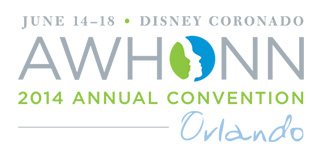Beyond 39 Weeks: Sustainability in Decreasing Cesarean Rates in Elective Inductions
Title: Beyond 39 Weeks: Sustainability in Decreasing Cesarean Rates in Elective Inductions
- Name 3 potential neonatal complications of birth prior to 39 weeks.
- State 2 evidence based criteria for elective induction.
- Discuss the value of nursing empowerment in a culture of safety.
Design: The PQSC developed a policy restricting elective inductions to women who are at least 39 weeks with a bishop score of greater than 7. Evidence shows that infants born prior to 39 weeks gestation have an increased risk for problems leading to NICU admission. Additionally, women who are induced with a bishop score greater than 7 have a probability of vaginal delivery that is similar to spontaneous labor.
Sample: Low-risk, healthy women undergoing elective induction.
Methods: A standardized process for booking inductions was developed including a physician request form documenting gestational age, bishop score and induction indication. Education was provided and feedback was solicited from nursing and physician staff prior to implementation.
Implementation Strategies: Charts were audited monthly and feedback was provided to staff. Compliance with the 39 week requirement was high. In the first month only 50% of patients induced electively had a documented bishop score. During 2010-2011 compliance with the bishop score fluctuated between 55-90%. Non compliant physicians were referred to peer review, but it did not always improve performance. In 2012, the PQSC determined that a nursing driven hard stop at the time of booking was required. Inductions were not booked until the request form was approved by nursing. Physicians were informed that if patients presented to the unit who did not meet criteria, they would not be induced.
Results: Since 2010 there have been no elective inductions prior to 39 weeks. Compliance with the bishop score requirement has improved steadily. The mean compliance per month for 2010 was 75%. By July FY 2013 the rate was 96%. The cesarean rate for this population has decreased from 24.4% 6 months prior to 12.2% post policy implementation.
Conclusion/Implications for nursing practice: Nursing empowerment was a significant contributing factor to the success of this initiative. Originally ambivalent, the nursing staff did not want to “police” the attending physicians or contribute to patient dissatisfaction. Hard stops resulted in discharged patients and there were several physicians referred for peer review, but over time compliance with the policy became the norm. Supported by leadership, nursing’s empowerment and autonomy continues to be a driving force in our evidence based culture of quality and safety.
Keywords: Elective Indcution, Bishop score, Cesarean
